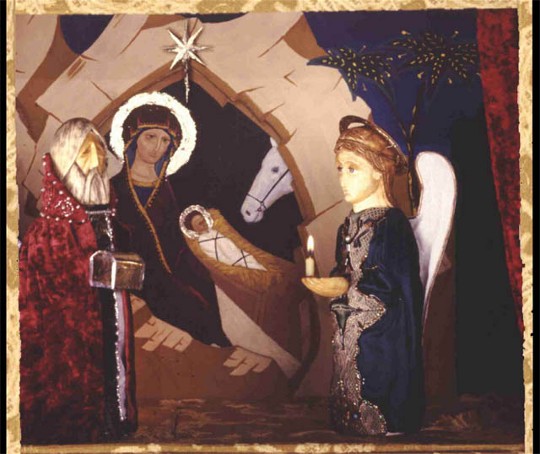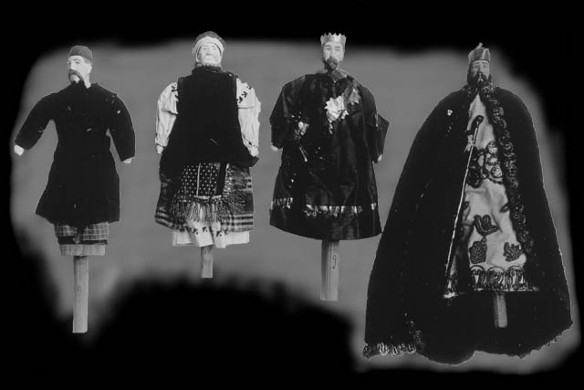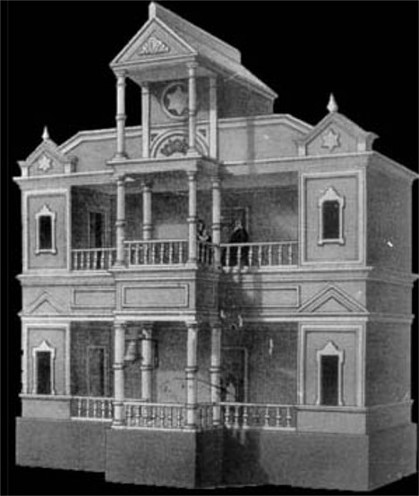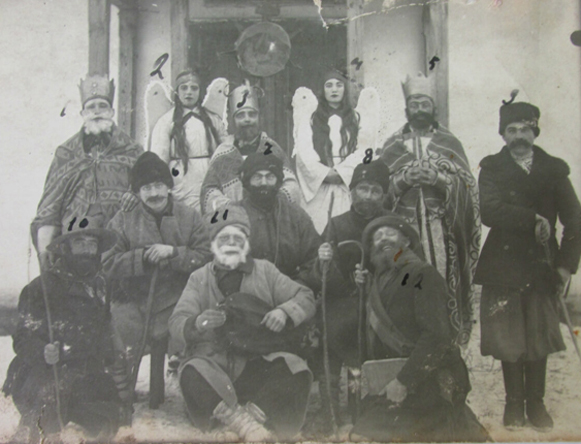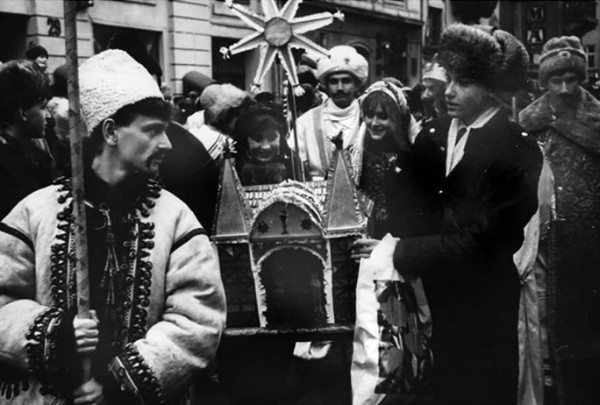Vertep
Vertep [вертеп]. A venerable form of Ukrainian puppet theater, regarded as distinct from the Polish szopka, the Belarusian betleika, and the Russian petrushka. The origins of the name vertep may be related to the verb vertitysia ‘to whirl,’ as do rays about a star. The vertep performance is a standardized enactment of the Nativity with merry interludes depicting secular life, in the style of an intermede. There are 10 to 40 vertep characters, typically among them a sacristan, angels, shepherds, Herod, three kings, Satan, Death, Russian soldiers, gypsies, a Pole, a Jew, a peasant couple, and various animals. All the hand puppets are usually operated by one person, the vertepnyk. The vertep is also the two-level stage in the form of a building in which the performance takes place, the religious part on the upper level and the secular part on the lower.
Vertep performances date back to the late 16th century. They reached their height in popularity in the second half of the 18th century. Many students from the Kyivan Mohyla Academy contributed to the development of vertep puppet theater; its two-part performance was in part a reflection of the academy's style of theatrical productions. Itinerant precentors were also responsible for popularizing vertepy. In time the specifications as to vertep stage architecture; the number, character, and construction of the puppets; and costumes, music, and scripts became well defined. The foremost village vertepy were in Sokyryntsi, Baturyn, and Mizhhiria. The secular part in vertep performances often contained references to contemporaneous events; a Zaporozhian Cossack puppet, for example, appeared during the reign of Catherine II.
Vertep theater declined in the mid-19th century. It has retained a symbolic significance, as in the miniature Nativity scene displayed in Ukrainian homes during the Christmas season and in the Christmas carolers dressed up as vertep characters. In the 20th century vertep theater has been revived as a zhyvyi ‘live’ vertep, with live actors faithfully re-creating the traditional village vertepy, by Les Kurbas’s Molodyi Teatr, for example, the Lviv Ukrainian Drama Theater, the Avant-Garde Ukrainian Theater in Toronto, and the New Generation Theater in Cleveland.
BIBLIOGRAPHY
Markovs'kyi, Ie. Ukraïns’kyi vertep: Rozvidky i teksty (Kyiv 1929)
Fedas, I. Ukraïns'kyi narodnyi vertep (Kyiv 1987)
Valerian Revutsky
[This article originally appeared in the Encyclopedia of Ukraine, vol. 5 (1993).]
